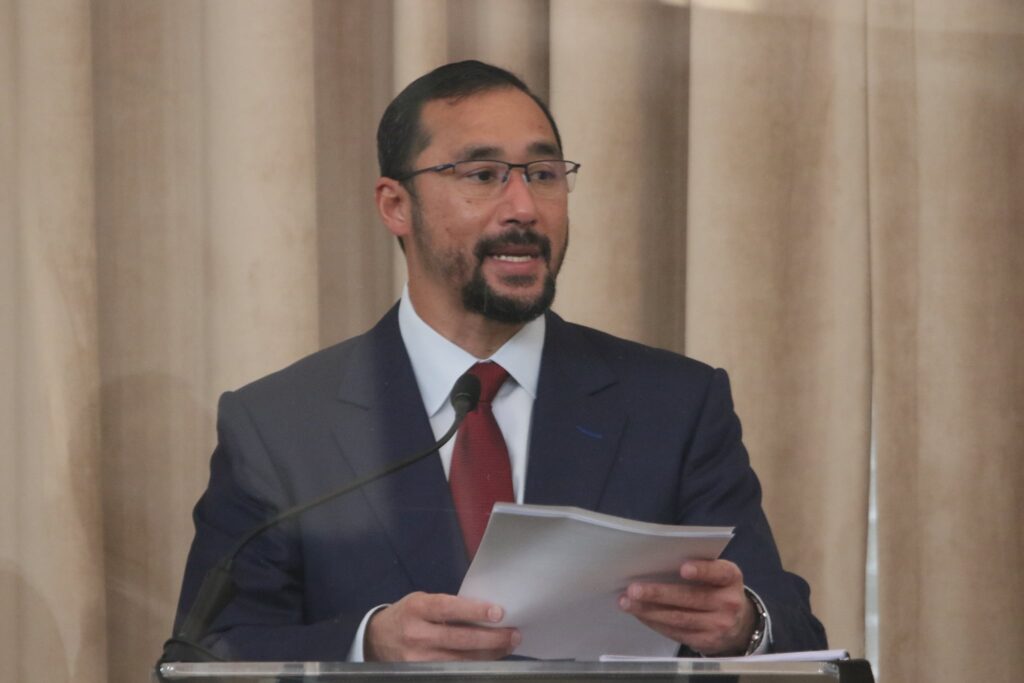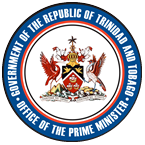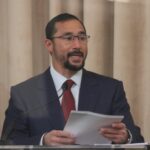- 18 FEB 2022
Report of The Committee Appointed to Investigate The Factors Contributing To Clinical Outcomes Of Covid-19 Patients In Trinidad And Tobago

STATEMENT OF THE HONOURABLE STUART YOUNG,
MINISTER IN THE OFFICE OF THE PRIME MINISTER
THE REPUBLIC OF TRINIDAD AND TOBAGO
REPORT OF THE COMMITTEE APPOINTED TO INVESTIGATE THE FACTORS CONTRIBUTING TO CLINICAL OUTCOMES OF COVID-19 PATIENTS IN TRINIDAD AND TOBAGO
Madame Speaker, I have been authorized by the Cabinet to make the following statement.
Unfortunately, we continue to be in a pandemic, that is COVID-19, which we have been dealing with for over two years. The world, and Trinidad and Tobago is no exception, was forced to deal with a potentially deadly virus that was highly transmissible, and we, as a people, had to respond. We responded as the Government by being guided by the science, following the World Health Organisation (WHO) and its recommendations, communicating with experts from around the globe, observing and studying the responses of others, and importantly working closely with a team of public health care professionals from our public health care system, under the Ministry of Health, a team of experts led by our Chief Medical Officer, Dr Rosham Parasaram.
The world had to learn, adapt, and respond, in managing this virus. At all times, the Government’s priority was to protect the population, as best as possible, and to ensure that our public health care system was provided with the best resources that we could reasonably do in our circumstances, so that persons who required treatment for both COVID-19, as well as, all other medical attention would be able to access same.
Fortunately, Madame Speaker we have managed, so far, to be able to achieve this, and even though in the waves of COVID-19 surges that we have had to endure at times our public health care system was pressed to limits, at no point in time did it collapse under the weight of the effects of the virus. We managed. We managed due to the commitment and dedication of our health care workers, their professionalism and ability to step up to the plate, time and time again, and due to the Government’s commitment to prioritise and provide the necessary resources to the public health care system.
Even before the first COVID-19 case was detected in Trinidad and Tobago on March 12, 2020 the Government of the Republic of Trinidad and Tobago had begun preparations to deal with the treatment of the virus. One of the pillars of our response to COVID-19 was to build out a parallel health care system dedicated to the treatment of patients afflicted with the virus who require care and hospitalisation.
Unfortunately, whilst having to deal with all of the natural difficulties of managing this pandemic, and keeping our public health care system operational, including, a parallel health care system, the opposition began publicly attacking not only the Government’s efforts to protect the population but also attacking, the medical health care professionals who were providing the care, guidance and advice, in responding to COVID-19. The opposition, have been attempting to sow seeds of doubt and through unfair, and uneducated criticism, have been trying to affect the public’s trust and confidence in our public health care professionals’ efforts in responding to the virus. The Leader of the Opposition has even gone so far, as to personalise, her attacks on the credibility of the team of public health care experts that advise the Government, and the population, with respect to the virus.
The Government has had to defend its policies and actions, as well as the conduct of the public servants managing this pandemic, in the courts on numerous occasions and to date, we have successfully done so.
Madame Speaker, the Government asked a team of independent experts to investigate and assess the public health care system and its treatment of COVID-19 patients. It was the Honourable Prime Minister who announced the appointment of a five member committee of independent experts to investigate the factors contributing to clinical outcomes of COVID-19 patients in Trinidad and Tobago. At the time of this announcement, the Prime Minister gave a commitment, that on receipt of the report of the Committee, he would lay it in Parliament, for public consumption.
At the end of presenting this statement, I will lay a copy of the one hundred and five (105) page report of the Committee in fulfilment of the Prime Minister’s commitment. The Prime Minister having received his copy of the report this week, has ensured that it is laid in Parliament on the earliest possible date. The report is dated February 14, 2022 and was delivered to the Government on February 15, 2022.
Madame Speaker the composition of the committee of independent experts was as follows:-
• Professor Terence Seemungal, FRCP, PhD, CCST, FACP – Professor of Medicine and Chest Specialist, Dean, Faculty of Medical Sciences, University of the West Indies – St Augustine Campus (UWI-STA);
• Professor Emerita Phyllis Pitt-Miller, CMT, MB ChB, DA, FRCA – Professor of Clincal Anaesthetics and Intensive Care, UWI-STA, & Consultant Anaesthetist, Eric Williams Medical Sciences Complex;
• Dr. Anton Cumberbatch, MBBS, MPH – Specialist in Public Health and Former Chief Medical Officer;
• Dr Vidya Dean, DM (Anaes), UWI, DA (UK), FFARCSI, FRCA – Consultant in Anaesthetics and Intensive Care; and
• Professor Donald Simeon, PhD, MSc, BSc, Cstat – Professor of Biostatistics and Research, Director of Caribbean Centre for Health Systems Research and Development, UWI-STA.
We thank them for their work and taking on the task given to them.
The terms of reference of the Committee included, inter alia,
• An examination of the Admission, Discharge and Transfer (ADT) policy and procedure to determine the impact, if any on clinical outcome(s);
• A determination as to whether the treatment and management protocols adopted by the Hospitals are consistent within WHO guidelines and international best practice, with access to adequate: (a) levels of staffing appropriate in a mass response to a global pandemic; (b) essential medicines; (c) laboratory and diagnostic imaging services; and (d) PPE; Oxygen; other;
• To identify any other factors that may affect clinical outcomes including, but not limited to, (a) suboptimal home treatment, for e.g., utilizing non-WHO approved therapeutics; (b) delayed presentation to health facilities; and (c) efficiency of the transfer system in transporting patients from home to hospital and inter-hospitals in the RHA health network.
Madame Speaker the Committee was convened on January 17, 2022 and deliberated until February 14, 2022. The Committee collected data over a three week period and then proceeded to analyse, deliberate and craft their report. The Committee conducted what they have described as a “rapid assessment” through the following mechanisms:
(1) Meetings with technical officials of the Ministry of Health to determine what policies and data were available;
(2) Visits to COVID-19 care institutions in Trinidad and Tobago;
(3) Informal interviews of staff during their visits;
(4) Confidential interviews of staff from all RHAs involved in COVID-19 care;
(5) Interviews of senior management of the RHAs;
(6) Audits of medical notes;
(7) Statistical analyses of secondary data sets of persons who died from COVID-19, who were hospitalized, and who were managed at home; and
(8) An online survey of persons who were treated for COVID-19 at public health care facilities.
In the summary of their report the Committee stated, inter alia, that:
“We found that the admissions, discharge and transfer policies for COVID-19 patients are within the ambit of international best practice especially as recommended by the WHO. We found that the implementation of the policies during the Pandemic were hampered by unpredictable staff shortages and staff burn-out. We recommend that close attention needs to be paid to staff morale as well as the purchase of some consumables. We wish to commend one institution where there was a staff mental health and wellness service serviced by two psychologists as an example of best practice. Another area of best practice was that at many of the institutions that were visited, staff told us that they routinely communicated with the families of COVID-19 patients on a daily basis.”
The report goes into detail as to the methodology that the Committee used in carrying out its assessment and sets out their findings. Some of the highlights that I wish to draw to your attention Madame Speaker are:-
• The Primary data collection included (1) interviews of Key Health Care Sector Stakeholders, (2) Site Visits to COVID Treatment Facilities, and (3) Patients’ Online Survey;
• Patient notes were reviewed as one way to investigate the quality of care that patients received at COVID-19 Treatment Hospitals. The notes reviewed were confined to those who were treated in ICU or HDU – the sites with the highest COVID-19 mortality;
• Requests were made for all relevant policies and protocols that guide the treatment and care of COVID patients in Trinidad and Tobago;
• An analysis was done of COVID-19 Deaths, Hospital Admissions and Patients Managed at Home. This included looking into the demographics, places of death, presence of comorbidities and vaccination status;
• The Committee looked at the level of care given to samples of patients;
• The Committee considered the effects of weight and obesity, non-communicable diseases (NCDs), including diabetes, and chronic diseases;
• The Committee looked at the transfer and transporting systems for COVID-19 patients;
• The Committee looked into the admissions criteria and found that, “the admission criteria met international best practices. It would seem that the patients were admitted to the correct location to receive the appropriate type of care, however the staff told us that it was their impression that during the recent surge patients “presented late and as such they were more seriously ill”. We were not able to detect any delays in the provision of care which might have led to a negative result execpt that they presented in the second phase of the disease.”;
• With respect to the discharge criteria the Committee found that, “the Discharge Policy was well planned and appeared to work well from our assessment of the medical records, staff comments on our facilities’ tour, from the patient survey, and staff interviews.”;
• The Committee raised concern with respect to staff levels, citing shortages and conditions as areas that needed addressing. The Committee recognised that shortages of staff “are an international problem in this pandemic.”; and
• Lastly, the Committee did a specific assessment of the COVID-19 response in Tobago and provided their findings with respect to same.
Madame Speaker the Committee concluded its report with sixteen (16) recommendations. I highlight the following for the public, but due to the limitations of time, it is not feasible for me to read out all sixteen:-
• Data Management system, data verification – “There is an urgent need for electronic medical records.”;
• NCDs management – “It is likely that citizens with NCDs would again be at increased risk for poor outcomes if and when there is another event such as the COVID-19 pandemic. The clinical staff who have been hired temporarily and whose contracts would be discontinued at the end of the pandemic should be redeployed to respond to the NCD morbidity debt that has accumulated during this pandemic.”;
• Dedication of frontline staff – “We were impressed with the application of the nurses, doctors, paramedical and support staff who managed COVID-19 patients. However, at some RHAs, some of the staff in the frontline felt abandoned by the leadership. We recommend the RHAs implement a specific feedback system to monitor the needs of the staff on the frontline.”;
• Supplies from C40 – “The frontline staff need 24 hours per day x 365 days support during the pandemic. We recommend that C40 should be continuously open, seven days per week.”; and
• Tocilizumab – “Tocilizumab is given at an advanced stage of COVID-19. Most staff were very impressed by its effects and perhaps C40 needs to increase purchasing of this drug. Though it is an expensive drug there is a cost-benefit to be realized from its use. We recommed that the policy regarding Toclizumab use be reviewed.”
Madame Speaker these are some of the pertinent areas of the report that was commissioned by the Honorable Prime Minister. The independent team of experts performed their duty and provided their key findings and recommendations. It is important to note that they did not find that the parallel health care system or indeed the team of public health care professionals leading the medical response to COVID-19, to be outside of international best practices.
In keeping with the Prime Minister’s commitment, the report is hereby made public, and the Government will study it, and its recommendations, and make any adjustments that it can which are reasonable, in improving the clinical treatment of COVID-19.
In conclusion, on behalf of the Government and the people of Trinidad and Tobago, I thank the five-member Committee for their work and report and I thank all of the health caregivers and personnel in our public health care system who have worked tirelessly for us, the people, during the course of this pandemic and may God continue to bless them and their families and our Country.





